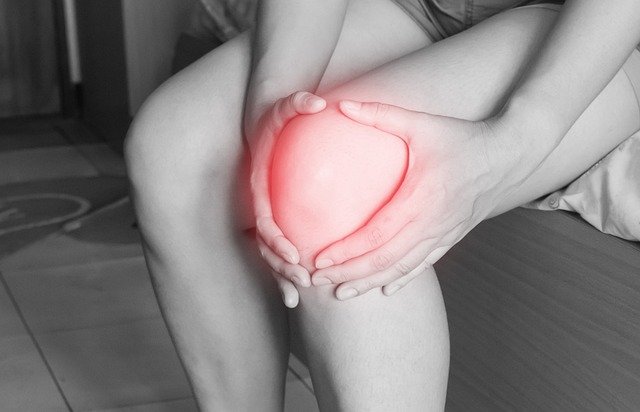Effective Knee Pain Treatment: Understanding Your Options
Topical knee relief creams may help ease minor aches linked to overuse or stiffness. Formulas can include cooling agents, soothing botanicals, or anti-inflammatory ingredients. Use as directed and consult a healthcare provider if pain is persistent or worsening.

What Causes Knee Pain?
Knee pain can stem from various sources, including injuries, overuse, and chronic conditions. Common causes include osteoarthritis, tendinitis, bursitis, and ligament strains or tears. Understanding the root cause of your knee pain is essential for determining the most appropriate treatment approach. While severe cases may require medical intervention, many individuals find relief through conservative measures, including the use of topical knee pain creams.
How Do Knee Pain Creams Work?
Knee pain creams are topical treatments designed to provide localized relief. These creams typically contain active ingredients that work in different ways to alleviate discomfort. Some formulations include cooling agents like menthol, which can create a soothing sensation and temporarily mask pain. Others incorporate anti-inflammatory compounds or natural botanicals known for their pain-relieving properties. When applied to the skin, these creams are absorbed and can help reduce inflammation, improve circulation, and provide a numbing effect to the affected area.
What Ingredients Should You Look for in Knee Pain Creams?
When selecting a knee pain cream, it’s important to consider the active ingredients and their potential benefits. Some common ingredients found in effective knee pain creams include:
-
Menthol: Provides a cooling sensation and temporary pain relief
-
Capsaicin: Derived from chili peppers, it can help reduce pain signals
-
Salicylates: Similar to aspirin, these compounds have anti-inflammatory properties
-
Camphor: Offers a warming sensation and may improve blood flow
-
Arnica: A natural herb known for its anti-inflammatory and pain-relieving effects
-
Glucosamine and Chondroitin: May support joint health and reduce inflammation
Look for creams that contain a combination of these ingredients for potentially enhanced effectiveness in treating knee pain.
How to Properly Apply Knee Pain Cream for Maximum Relief
To get the most benefit from knee pain cream, proper application is key. Follow these steps for optimal results:
-
Clean the affected area thoroughly and ensure the skin is dry.
-
Apply a small amount of cream to the painful area, using gentle circular motions.
-
Massage the cream into the skin until it’s fully absorbed.
-
Wash your hands thoroughly after application to avoid transferring the cream to sensitive areas.
-
Apply the cream as directed on the packaging, typically 3-4 times daily or as needed.
Remember that while knee pain creams can provide relief, they should not be used as a long-term solution without consulting a healthcare professional.
Are There Any Side Effects or Precautions to Consider?
While knee pain creams are generally safe for most people, there are some potential side effects and precautions to keep in mind:
-
Skin irritation: Some individuals may experience redness, itching, or burning at the application site.
-
Allergic reactions: Always check the ingredients list and perform a patch test if you have sensitive skin or known allergies.
-
Interactions: If you’re taking other medications, consult with a healthcare provider to ensure there are no potential interactions.
-
Overuse: Applying more cream than recommended or using it for extended periods may lead to skin sensitivity or reduced effectiveness.
-
Pregnancy and breastfeeding: Consult a doctor before using knee pain creams if you’re pregnant or nursing.
If you experience any unusual symptoms or prolonged discomfort, discontinue use and seek medical advice.
| Product Name | Key Ingredients | Average Price Range |
|---|---|---|
| Biofreeze Pain Relief Gel | Menthol | $10 - $20 |
| Voltaren Arthritis Pain Gel | Diclofenac sodium | $15 - $25 |
| Tiger Balm Arthritis Rub | Camphor, Menthol | $8 - $15 |
| Penetrex Pain Relief Cream | Arnica, Vitamin B6 | $20 - $30 |
| Bengay Ultra Strength Pain Relief Cream | Menthol, Camphor, Methyl Salicylate | $7 - $12 |
Prices, rates, or cost estimates mentioned in this article are based on the latest available information but may change over time. Independent research is advised before making financial decisions.
Topical knee pain creams can be an effective part of a comprehensive approach to managing knee discomfort. While they may provide temporary relief for minor aches and stiffness, it’s important to remember that persistent or worsening pain should be evaluated by a healthcare professional. Knee pain creams work best when used in conjunction with other treatments such as rest, physical therapy, and appropriate exercises. By understanding the options available and using them correctly, you can take steps towards finding relief and improving your overall knee health.
This article is for informational purposes only and should not be considered medical advice. Please consult a qualified healthcare professional for personalized guidance and treatment.




